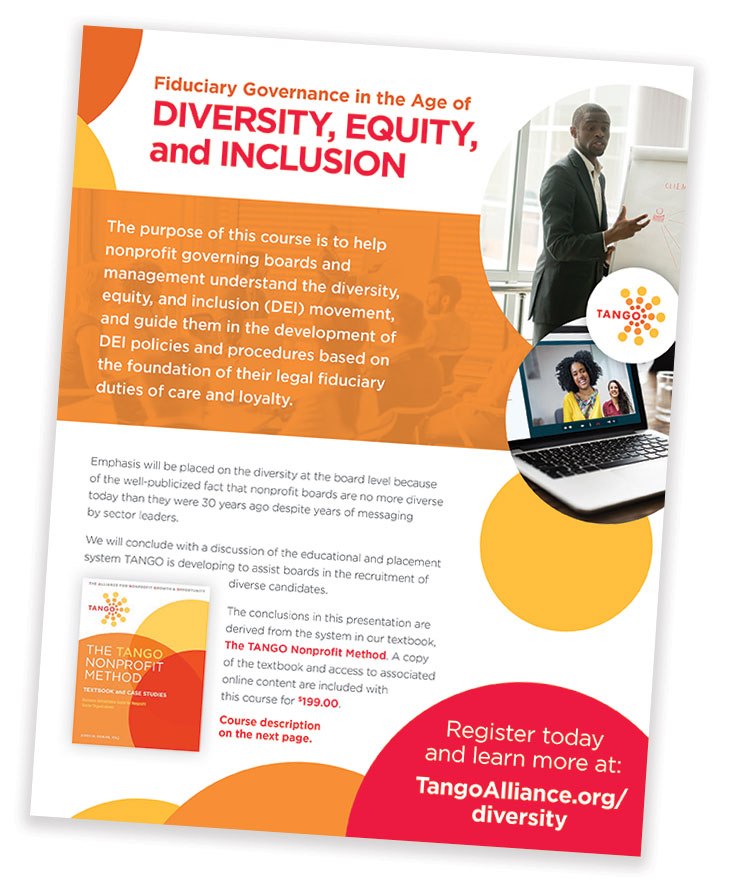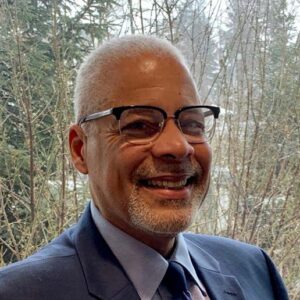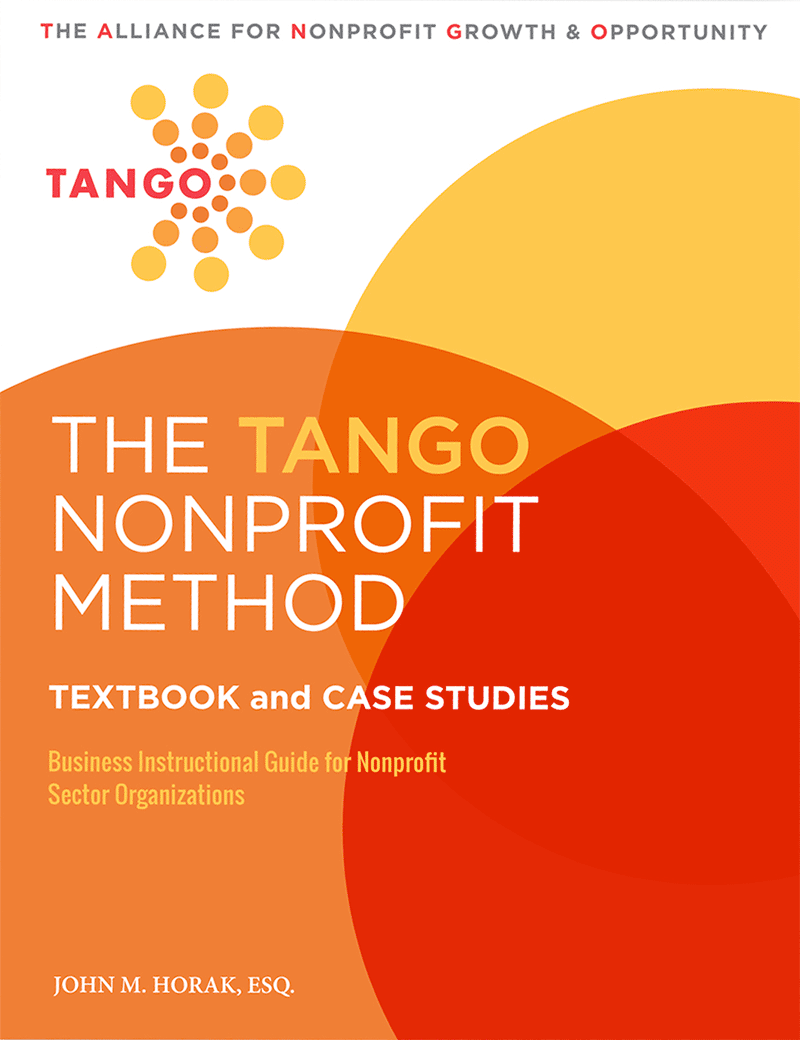Fiduciary Governance in the Age of Diversity, Equity, and Inclusion - Virtual Webinar
The purpose of this virtual diversity training course is to help nonprofit governing boards and management understand the diversity, equity, and inclusion (DEI) movement, and guide them in the development of DEI policies and procedures based on the foundation of their legal fiduciary duties of care and loyalty.
Emphasis will be placed on the diversity at the board level because of the well-publicized fact that nonprofit boards are no more diverse today than they were 30 years ago despite years of messaging by sector leaders.
We will conclude with a discussion of the educational and placement system TANGO is developing to assist boards in the recruitment of diverse candidates.
The conclusions in this presentation are derived from the system in our textbook, The TANGO Nonprofit Method. A copy of the textbook and access to associated online content are included with this course for $199.00.

Join a Course Today!
$199.00
Check back soon.
New dates coming!
Course Overview
Introduction
(30 Minutes)
Jack Horak, Esq. & Fred Jenoure
- DEI as a cultural phenomenon
- The origins of TANGO’s Diversity Initiative
- A fiduciary duty to use best efforts to incorporate DEI within the board and throughout the organization
- Our effort to develop generally applicable and uniform diversity standards
- TANGO’s diversity training and placement system based on the TANGO Nonprofit Method textbook
The Origins & Importance of DEI
(30 Minutes)
Fred Jenoure
- What are its foundational principles & objectives?
- What successes & failures has it had to date among nonprofit boards?
- What has been done right? What has not?
- What are the cultural barriers that we need to overcome?
- The primary importance of the diversity of thought and ideas
DEI Guidelines for Boards of Directors
(60 Minutes)
Jack Horak, Esq.
- The nonprofit board as a fiduciary deliberative body
- The relationship between the mission & diversity
- Diversity of thought in the deliberative process
- Diversity as a part of board recruitment
- Sample diversity language for board resolutions & by-laws
Review with Questions & Answers
(30 Minutes)
Jack Horak, Esq. & Fred Jenoure
- Case studies
- Practical advice
- TANGO’s recruitment & placement system
- Questions & answers
ABOUT THE PRESENTERS

Jack Horak, Esq.
Attorney/Director
The Alliance for Non-Profit Growth and Opportunity (TANGO)
Contact Jack – 860-507-8902 or via email
John M. Horak, Esq. (Jack) joined TANGO on October 1, 2016 after a 36-year legal career at the Hartford office of the law firm Reid and Riege, P.C. Jack was a member of the firm’s Business Law Practice, where he created the firm’s Nonprofit Organization Practice Group. Jack was the principal author of the Reid and Riege Nonprofit Organization Report, a quarterly publication distributed throughout the United States; and also regularly published articles and editorials on legal and policy issues in Philanthropy Magazine, the Hartford Courant the Connecticut Law Tribune, and the Hartford Business Journal where he writes a regular editorial column entitled “Rule of Law.” He also is the author of The TANGO Nonprofit Method, a business instruction textbook for people serving in the nonprofit sector.

Fred Jenoure
Director of TANGO’s Board Diversity Initiative
The Alliance for Non-Profit Growth and Opportunity (TANGO)
Contact Fred – (508) 736-4488 or via email
Frederick Jenoure, is director of TANGO’s Board Diversity Initiative and Consulting Practice. Fred has more than 30 years of experience in leadership positions with several prestigious institutions and community organizations, focusing on management and organizational structures, diversity and inclusion, supervisory training, property management, conflict resolution, and union negotiations. He was named Volunteer of the Year by the Urban League of Greater Hartford, and the Adult of the Year Award from the YMCA of Central Mass. He served as Chairman of the board of the YMCA of Central Massachusetts, Vice President of the Connecticut Council for the Advancement of Diversity, Secretary of the Board of Directors of the Urban League of Greater Hartford, and in similar senior positions on several nonprofit organizations in Massachusetts and Connecticut.
“There are a lot of publications purporting to tell you how to run your nonprofit, but The TANGO Nonprofit Method is the best resource we’ve seen. If you want to really know all the legal and operational steps to take to make your nonprofit successful, this book should be in your library.”
“The TANGO Nonprofit Method is a beautiful balancing act. Comprehensive and accessible. Educational and practical. Whether you are a seasoned professional advisor or just starting your first term as a nonprofit director, this work will quickly become your “go to” resource, a guide that will cultivate a deep and rewarding understanding of the nonprofit sector.”
“This book is an invaluable resource for officers, directors and senior leaders of nonprofit organizations of all sizes and types. Written in plain English, the book educates the reader about the business of nonprofits — the legal structures, the financial structures and governance — and provides examples and case studies that put the material in context. A must-read for anyone new serving on a nonprofit board”.

The TANGO Nonprofit Method
Jack used his 36 years of combined legal experience in both the for-profit and nonprofit sectors to author The TANGO Nonprofit Method. The book accompanied by interactive presentations is a nonprofit instructional guide that will enhance your organization’s mission and structure. It will guide nonprofits through best practices for your boards of directors, management teams, employees, clients and overall company mission!
“The TANGO Nonprofit Method is a necessary resource for all existing or newly formed nonprofit organizations. An essential tool for both staff and board members that is easy to read and reference. I would recommend to all nonprofit executive directors to further enhance their board education efforts as it can be easily sectioned and included as a regular meeting agenda item.”
